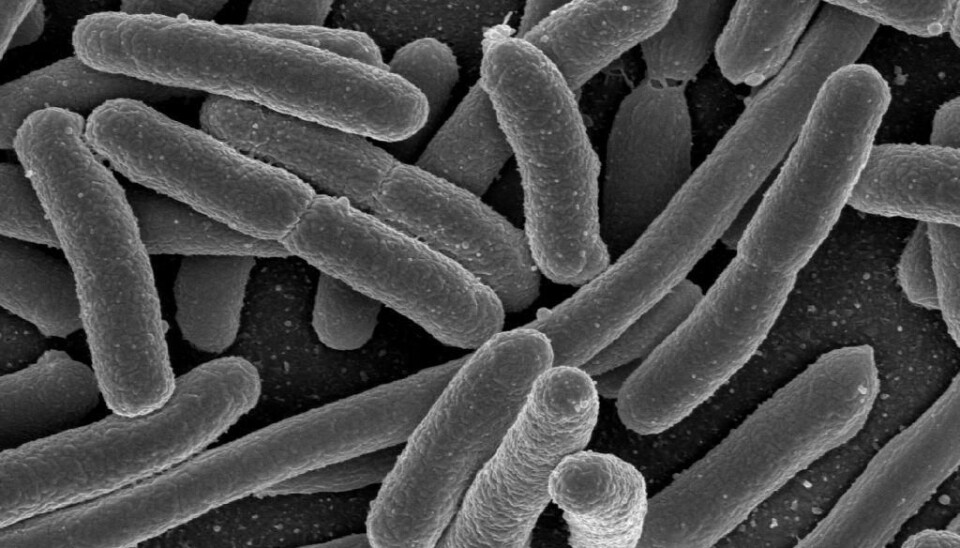
Gut bacteria will revolutionise medicine
Gut bacteria are a source of many potential treatments. But what do we know about gut bacteria and their medical possibilities?
Research in gut bacteria and its importance for our health has made huge advances in recent years.
More and more research indicates that gut bacteria and their composition have an enormous influence on our health and could possibly affect the risk of developing everything from obesity and diabetes to autism and schizophrenia.
An improved understanding of the interaction between the body and bacteria can open up new treatment options, which are the subject of a recently published a scientific paper by two of the leading scientists in the field.
In the article, published in the New England Journal of Medicine, Professor Oluf Borbye Pedersen from the Novo Nordic Foundation Center for Basic Metabolic Research at the University of Copenhagen, Denmark, and Professor Susan Lynch from the University of California, USA, outline the future medical perspectives in understanding and exploiting the potential of intestinal bacteria.
Soon, they write, gut bacteria could be used to develop cures for chronic gut infections such as Crohn's disease and inflammatory bowel disorder. They could even help the body to fight cancer.
“Not too many years ago, the research field was just starting out, but today, gut bacteria have become mainstream and we are now on the threshold of being able to exploit the past ten years of basic research to break through to the next stage: pilot studies on people suffering from various chronic diseases,” says Pedersen.
One of the most active research areas
Henrik Bjørn Nielsen is the head of the scientific department in research company Clinical-Microbiomics, and has been studying gut bacteria for many years.
In his previous work at the Technical University of Denmark (DTU), he and his colleagues mapped 500 new gut bacteria.
Nielsen has read Pedersen’s article and he believes that gut bacteria and all other bacteria that live in and on our bodies (the microbiome) have big potential in developing medical treatments.
“It’s probably best illustrated by the fact that there are right now over 1,000 microbiota-related clinical trials underway around the world. One of the most interesting aspects is that it’s happened so quickly,” says Nielsen.
“There’s no other research area, where in just ten years you’ve gone from establishing a research field to starting so many clinical trials. It shows how large the potential is and what great confidence and hopes people have for the field,” he says.
Read More: New study completes mapping of our gut bacteria
Gut bacteria affect many diseases
The role of intestinal bacteria on human health has come to the fore in recent years.
In 2016, scientists discovered that the composition of intestinal bacteria can impact asthma. Two years earlier, scientists showed that intestinal bacteria could eliminate autism in mice. Other studies have demonstrated that intestinal bacteria play an important role in the development of obesity.
Certain beneficial bacteria can also keep our immune system healthy.
Destroying the balance of intestinal bacteria in the gut with antibiotics can therefore leave space for populations of harmful bacteria to expand, which can for example, lead to strep throat, pneumonia, and otitis media (an inflammation of the middle ear).
Read more: Gut bacteria sends signals to the brain to make us fat
Gut bacteria can help fight cancer
In the new article, Pedersen and Lynch cast light on how scientists could use the last ten years of research to develop new treatments in the near future.
One of the areas, where gut bacteria could play an interesting role, is in the treatment of some cancers, says Pedersen.
Studies of mice have recently shown that certain species of lactic acid bacteria and bifidobacteria can enhance the effects of immunotherapy in numerous cancers, he says.
Gut bacteria improve immunotherapy
Today, patients with cancer such as melanoma can be treated by immunotherapy, which can work better for some patients than others.
The research can potentially explain why the treatment only works for 20 per cent of the people treated by immunotherapy.
“Scientists have shown that a rich presence of these bacterial species enhance the effects of immunotherapy. It's really exciting because it suggests that the bacteria secrete molecules that enhance the immunotherapy effects. This is inspiring us to explore whether something similar is also true in humans,” says Pedersen.
Nielsen agrees that gut bacteria research will lead to a breakthrough in cancer research in the future.
“The microbiome contains millions of genes. In comparison, we humans contain only 25,000. There’s a lot of biochemical potential here that we’ve only just begun to be aware of,” says Nielsen.
-----------------------
Read the Danish version of this article on Videnskab.dk
Translated by: Catherine Jex






